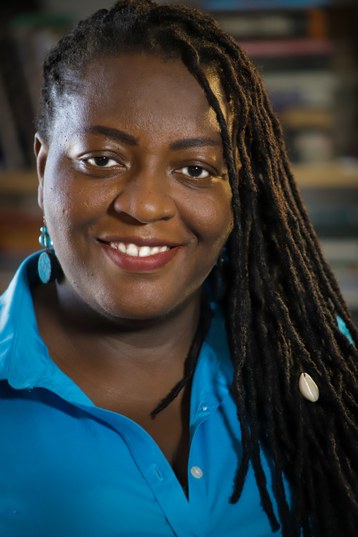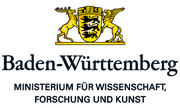Interview with ghanaian filmmaker Aseye Tamakloe ("When Women Speak")
The ACT interviewed Aseye Tamakloe, filmmaker ("When Women Speak") and PhD student from the University of Ghana and spoke with her about the connections between cinema and research. The interview was conducted by Carla Bube.

ACT: Thank you for taking the time for us. Can you quickly introduce yourself?
Aseye Tamakloe: My name is Aseye Tamakloe. I am a PhD candidate from the Institute of African Studies at the University of Ghana in Legon, Accra. I’m also a filmmaker, and I work as a freelance film festival curator and programmer. I used to manage the European Union Ghana Film Festival and also co-programmed for the Film Africa Film Festival, which is London’s biggest celebration of African and African diasporic cinema and I am the founder and festival director of a women’s film festival in Accra called the Ndiva Women’s Film Festival. We have existed since 2017, although we took a break during COVID-19. Our most recent edition was this August before I came to Freiburg in October.
I also teach in a film school in my country, Ghana. It used to be called the National Film and Television Institute, but now it’s part of the University of Media Arts and Communication. So, yeah, those are the things I do.
ACT: That’s an impressive range of activities. How did you get here, to Freiburg and the ACT?
Aseye Tamakloe: I’m here in Freiburg at the University of Freiburg and the ACT through the Erasmus+ Fellowship Program between the University of Freiburg and the University of Ghana. I got nominated and came here for a semester starting in October 2024 and ending in February 2025.
As a PhD candidate, I’m working on my thesis while reporting home, but I also took the chance to audit a class at the University of Basel. The class is “Africa: Method Theory,” and I loved it. It’s a course for PhD and Master’s students in anthropology, history, and urban studies. Since my research is in African urbanities, though I use film as an entry, it aligns well with the class. My takeaway from the course is it delves into the epistemic and methodological approaches to African studies and has provided a critical/alternative lens for interrogating and reading African narratives within global discourses.
ACT: That sounds inspiring. Can you tell us more about your PhD research?
Aseye Tamakloe: Absolutely. My research topic is Order and Chaos: A Cinematic Reading of Urbanism in Ghanaian Cinema. I use Ghanaian cinema to interrogate African urban studies, focusing on Ghana, my country. Film is my entry point because, apart from being a filmmaker, which draws on my positionality. Most African cinema scholarship under urban studies focuses more on Francophone Africa or Nigeria because of Nollywood. Ghana has a rich cinematic history, but a noticeable gap exists between scholarly work in urban studies and Ghanaian cinema. The field has been somewhat underexplored. I’m particularly interested in the period from the 1980s to 2010.
This timeframe is crucial because it marked the rise of independent filmmaking and the video boom in Ghana. During this period, economic challenges led filmmakers to switch from celluloid to home video cameras. This was met with resistance, but it also made filmmaking more accessible.
Ghanaian cinema has a certain loose stratification when we talk about the industry. You have English-speaking Ghanaian films, usually centred on/in the city. Then there are Akan-language films, with a hub in Kumasi, a secondary city to Accra. Lastly, there’s Hausa-language films, produced in Nima in the heart of Accra, in a migrant community where Hausa—though not a “formal” language in Ghana—is dominant. This community includes Ghanaians from different regions as well as West Africans from countries like Senegal, Mali, and Niger. If you have read Ama Ata Aidoo’s “Changes, A Love Story” you will understand this space. Anyway, the films from this area reflect a hybrid cultural identity and are tied to a place often considered a slum but located in the middle of the city.
I’m examining how these three cinemas engage with urban concepts within the mentioned timeframe. I’m exploring issues of representation, space, informality, and identity construction and how this can contribute to the development of new vocabularies for African urban studies.
ACT: What stage are you in with your PhD?
Aseye Tamakloe: I’m at all the stages, in mini-form! PhD work isn’t linear; you go forward, back, and forward again. I’ve done a lot of literature reviews, watched many films, and had conversations with filmmakers. My time in Freiburg is helping me refine my ideas and get valuable feedback.
ACT: What are your goals while you’re in Freiburg?
Aseye Tamakloe: I’ll present my work to the ACT fellows for reviews and feedback. I am working on something like a public lecture that has yet to be finalized. I’m also screening my 2022 film, When Women Speak, at two events, with the Academic Film Screening Club. I’m using this opportunity to engage with new audiences. Additionally, I am working to advance my thesis writing.
ACT: I would be interested to hear, as an urbanist, what are your impressions of Freiburg? I’s not really a big town, so what are your thoughts?
Aseye Tamakloe: I’m still learning, so I wouldn’t call myself an urbanist yet… So, I didn't have expectations because I think that as you experience life, you learn to allow things to happen. You know, I have only been here for almost two months, but I do like Freiburg’s serene atmosphere and walkability. I’ve been exploring cultural activities, like theater and the Christmas market. I’ll try some hot wine at some point! Joseph Assuming, my colleague from the University of Ghana, came here two weeks before me, so he showed me around a lot, and it has been fantastic.
ACT: That’s great to hear. You’re a filmmaker and a researcher, and your research centers around cinema and stories, so – how and why did you become a filmmaker?
Aseye Tamakloe: I’ve always loved the arts, especially film, literature, and music. I've been intrigued by the screen and what happens there, and how things come to be. And so when I finished high school, and had to go to university, I opted for film school. And my passion for film only grew during my studies at film school, where I realized the power it has to shape narratives and influence society. Film combines visual storytelling, composition, music, and representation, creating a medium that both informs and engages audiences. I started as an editor, which I believe is one of the most critical roles in filmmaking, as editors craft the final narrative from raw footage. Research is integral to filmmaking—you need to know your audience, which is crucial, and the context of the narratives you work within and the technical aspects of creating impactful work.
ACT: Can you tell us more about When Women Speak and how it came about?
Aseye Tamakloe: When Women Speak is a documentary film that is the output of a research project titled An Archive of Activism: gender and Public History in Postcolonial Ghana. Professors Akosua Adomako Ampofo and Kate Skinner were the producers and PIs. The main aim of the project was to identify gaps in our knowledge about gender activism and women in public life in Ghana from independence until the turn of the millennium. Initially, it was meant to be a book supported by articles and a blog, but it was made into a film to reach a broader audience/readership…..
The filmmaking process was intense. Over 20 women appear in the film, 16 speaking to the camera. We used photos, archival footage, and animation, sound design and music to fill visual gaps and enhance the narrative structure. In the case of When Women Speak, the film was to engage emotions while maintaining academic rigour. Film is a challenging but rewarding medium.
ACT: How do you see the relationship between filmmaking and research?
Aseye Tamakloe: They’re deeply connected. Filmmaking involves as much research as academic writing but also requires attention to visuals, sound, and narrative. With When Women Speak, we had to weave diverse narratives and archival material into a compelling story. Filmmaking stretches you more than academic writing, as you primarily need to consider narrative and audience engagement 360 degrees. This may be one of the differences between producing a movie and writing a research paper. This could get me into trouble.
ACT: If someone could not attend your screenings, what films would you recommend to explore Ghanaian cinema?
Aseye Tamakloe: There are so many films… I’d recommend classics by King Ampaw, Kukruntumi Road to Accra, Nana Akoto, also known as Juju, which is a Ghana/ German Production, Genesis Chapter X, The famous Love Brewed in the African Pot, Ama, Sika Sunsum, His Majesty’s Sergent, Love or Something Like That, Perfect Picture by Shirley Frimpong Manso, Kumasi Yonko, Sinking Sands,by Leila Djansi, Keteke by Peter Sedufia, and many more. From a contemporary perspective, there are many films by Ghanaian filmmakers, especially women, on Netflix today and other streaming platform.
ACT: It seems there’s a wealth of African cinema that remains underappreciated. I hope your screenings and discussions will inspire people to dive into that. This has been a wonderful conversation. Thank you so much for sharing your insights about your research, films, and time in Freiburg. Do you want to conclude?
Aseye Tamakloe: Oh, I’m so thankful for this experience. It’s been transformative. I’m especially grateful to Professor Akosua Adoma Ampofo and Dr. Irene Appeaning Addo of IAS, University of Ghana and Prof. Andreas Mehler and Dr. Anika Becher of the ACT for the opportunity. I’ll miss this place [the ACT], the interactions, the small talk, the camaraderie, and the good vibes.
Every colloquium and presentation has allowed me to learn and refine my work. I hope that someday in my lifetime, I can have a space like the ACT, where young researchers get to come to present their work and get help constantly. It’s like we’re all working together—not on the same topics but with a shared purpose. It reminds me of the women’s movement in Ghana, where people from different backgrounds and ideologies work toward a common goal. Here, the goal might be publishing a paper, securing a grant, or advancing research, but the collaborative spirit is the same. It’s truly inspiring, and I’m in awe of the supportive and dynamic atmosphere.
ACT: That’s a wonderful way to see it. Thank you so much for sharing your journey, Aseye. It’s been a pleasure.
Aseye Tamakloe: Thank you, Carla. I’m grateful for this opportunity to reflect and share.






